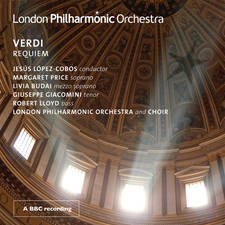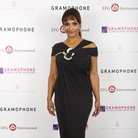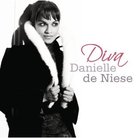Danielle de Niese: The Diva Who's Changing Opera
It’s all coming together nicely. The editor has asked for a juicy interview with Danielle de Niese – the temptress soprano known for her seductive manner on stage and her strength of personality off it. While the photographer and I wait at the appointed hour in the bar of an opulent London hotel, we hear that our subject has despatched one of her minions into the West End in search of an ornamental tiara.
Diva?
You bet. This is going to be a breeze.
At least, it would have been. In person, you see, Danielle isn’t quite what we were expecting. She arrives like a whirlwind all right. But it’s a whirlwind of easy-going informality and keen co-operation. She has an uncanny knack for sweeping you along with her, and immediately sets the room at ease. Within seconds she has clocked our objectives and set about meeting them. As the camera does its thing she gently mocks herself and helps out however she can. The photoshoot may be shorter and later than expected, but everyone leaves happy.
“I have no idea how other people behave in photoshoots,” says Danielle later in her room, “I don’t witness them.”
So I recount some famous horror stories and inevitably there’s the first utterance of the ‘D’ word.
“’Diva’ is not a negative word for me,”she proclaims unprompted. “Maybe it’s assumed some negativity… maybe it’s come to describe someone who’s demanding or mean, but my diva role models aren’t those things.”
Has she ever come across like that?
“You know, once my dresser at Netherlands Opera, Christina, said that she loved working with me because I’m a diva on stage but not off it. My mom told me she’d said that and I was very moved by it.”
And you can see where Christina is coming from. On stage, Danielle really is something. She hit the opera world like a tornado a few years back, a triple threat who could sing, act and dance. Her performances are total – inspired, spontaneous and captivating. She’s a stage animal and always has been: a TV anchor in LA at just 11-years-old who debuted at the Metropolitan Opera only eight years later. Her voice is young and has yet to find its full range of colours, but it’s well controlled and has an instantly attractive gleam. That, with her exotic good looks, has set opera houses worldwide clamouring for Danielle.
The UK got its first slice of the action in 2005. The opera was Handel’s Julius Caesar and the role was Cleopatra. David McVicar’s production at Glyndebourne quickly attained legendary status; it was revived twice and recorded for DVD.
“That kind of chemistry is golden,” Danielle says of it, her voice slowing with nostalgia. “We all knew it, and we were all excited to be a part of it.”
Vocally, Handel has been her bread and butter since. “I know I’m a light lyric soprano at the moment,” she says. “Where my voice is going, I have no idea. I think it’s going to grow, but I don’t know how. I don’t want to take any risks that could cause me to damage it – that’s why I’m on Handel and Mozart right now.”
She might not mention him, but Danielle has a knack for Monteverdi too, a man whose idiomatic music has wrong-footed even the most experienced of singers. As Monteverdi’s Poppea, Danielle created a formidable power-hunting vixen on the Glyndebourne stage.
“I’m not like that at all!” she shrieks with a smile when I ask if she drew on her own character for the role. But she soon shows a flicker of Poppea’s steel: “I’m a performing actor and I take the full embodiment of a role very seriously. I don’t go out there and second-guess myself. I don’t think, ‘Right, I don’t want people to think I’m being cruel so I’ll put a bit of Danni into it.’ I try to be completely the part.”
Underneath Danielle’s shiny, fun-loving LA accent is an acute musical perceptiveness. She’s not been immune from criticism, but talks honestly about the difficulties all singers face.
“Singing technique is a bit like spokes in an orb,” she says, clasping her fists in the air by way of demonstration. “It feels like there are so many different things to think about – so many different spokes to focus on. You can’t just touch a button and it comes out. But your technique is there to provide you with the closest feeling possible to touching a button and it coming out.”
She’s happy with the way her technique is evolving, but still experiences nervousness. “Nerves are there because you care,” she says.
With Danielle’s rare portfolio of talents have come equally rare demands. The opera world has seized on her and others like her, eager to exploit their talents and broaden the horizons of opera stagings.
“It’s good for any medium that there are artists and thinkers who challenge it,” she believes. “We have to adapt to different kinds of expectations and to the possibilities posed by different media. With the choreography in Julius Caesar, we really challenged the audience to look at Handel’s music from a different perspective.”
What she isn’t, Danielle insists, is part of a new-breed of opera singer determined to communicate differently.
“That’s just a label people put on young singers today,” she believes. “It’s just a new time that we happen to be living in. Every artist who stepped on stage in the past wanted to communicate just as much as we do now.”
She refers, by implication, to her idols Kiri Te Kanawa and Frederica von Stade. Danielle has worked with both, but still holds them in deep reverence.
“It’s a wonderful gift to meet the person behind the great artist. A huge gift,” she beams. “After meeting those two – the true divas – I loved them even more.”
Vocally and dramatically, Danielle doesn’t put herself in the same class as either. She adds that she’s “not aware” of people comparing her with other singers. But perhaps she’s just being cautious. In relative terms, she’s still very young. The title of her latest CD, Diva, is perhaps intended as a homage rather than a manifesto. It offers a snapshot of Danielle’s voice in its late twenties, including highlights from her Mozart and Handel aria CDs and three specially composed pieces.
But in reality, it’s on stage – not in front of the studio microphones – where Danielle truly shines. Her recent marriage to Gus Christie, Glyndebourne’s chairman and heir to the family estates, has prompted a flurry of comparisons to Audrey Mildmay – the Canadian soprano who stole the heart of Gus’s grandfather, inciting him to build an opera house in his garden to save her the chore of traipsing around Europe.
As attractive as the parallel is, Danielle’s position is rather different. She hasn’t taken a role at the Glyndebourne festival this summer, and will instead be preparing for imminent performances in Paris, San Francisco and New York. She’s busy on the international circuit, as anyone who caught her recent fly-on-the-wall TV profile The Diva Diaries will know.
“I’ve been honoured to be a part of Glyndebourne as a performer,” she says, “and it’s performing that’s the artistic statement of my work. It just happens that I fell in love with a person and they happen to be running Glyndebourne. But I wouldn’t want to be singing in one country all the time.”
In a sense, Danielle is just what Glyndebourne needs right now – a strong shot of transatlantic attitude and informality. For all her effortless poise on stage, she doesn’t overdo it on the airs and graces. That’s part of her charm. But even given Glyndebourne’s egalitarian working culture, its audiences can be severely judgemental.
“One thing I’ve always noticed is that music transcends boundaries and judgements,” Danielle says in response to that.
“When you’re really true and sincere to yourself and you let that shine out to people, well… I’ve never encountered any boundaries of any sort. I’ve had my knocks – I’ve missed out on parts and gone home and cried like everyone has. But if you can get up again and get back on course, it’s a testament to how much you love what you do. And I really do love it.”
With that it’s time to leave Danielle to her afternoon of frock shopping. “You know, you could always come with us…” she suggests. It’s a nice gesture. But Classic FM knows better than to get between a diva and her dresses – even a down-to-earth diva like this one.
BIOGRAPHY
■ Born 11 April 1979 in Melbourne, Australia
■ Lived in Australia for her first 11 years, becoming the youngest-ever winner of TV’s Talent Time in 1988
■ Moved with her parents to Los Angeles, USA, in 1990
■ Won an Emmy aged 11 for her work as presenter of current-affairs arts show LA Kids
■ Made her debut at the New York Met aged 19, playing Barbarina in Mozart’s The Marriage of Figaro
■ Performs regularly at the Royal Opera, the Met and at the Chicago Lyric, San Francisco and Netherlands Operas
DANIELLE DE NIESE ON CD AND DVD
Monteverdi - L’Incoronazione di Poppea A performance full of drama that oozes natural, un-forced musical style. An all-round great show.
Decca 074 3339
Handel - Julius Caesar The show that brought Danielle to worldwide prominence, recorded live at Glyndebourne in 2005.
Opus Arte OA 0950 D
Diva - Various composers
Hand-picked highlights from Danielle’s Mozart and Handel discs, with three bonus extras.
Decca 478 2417





